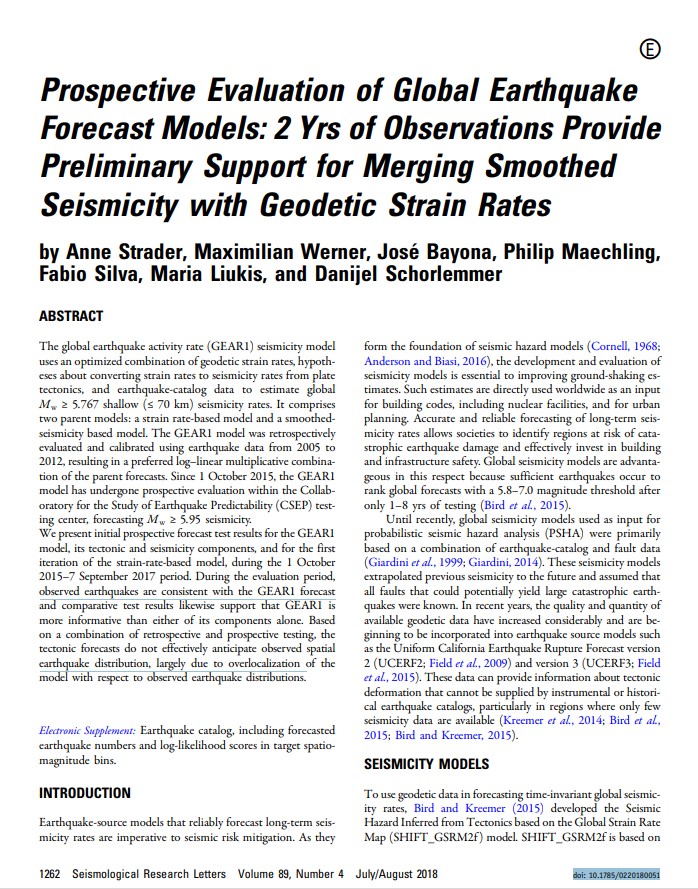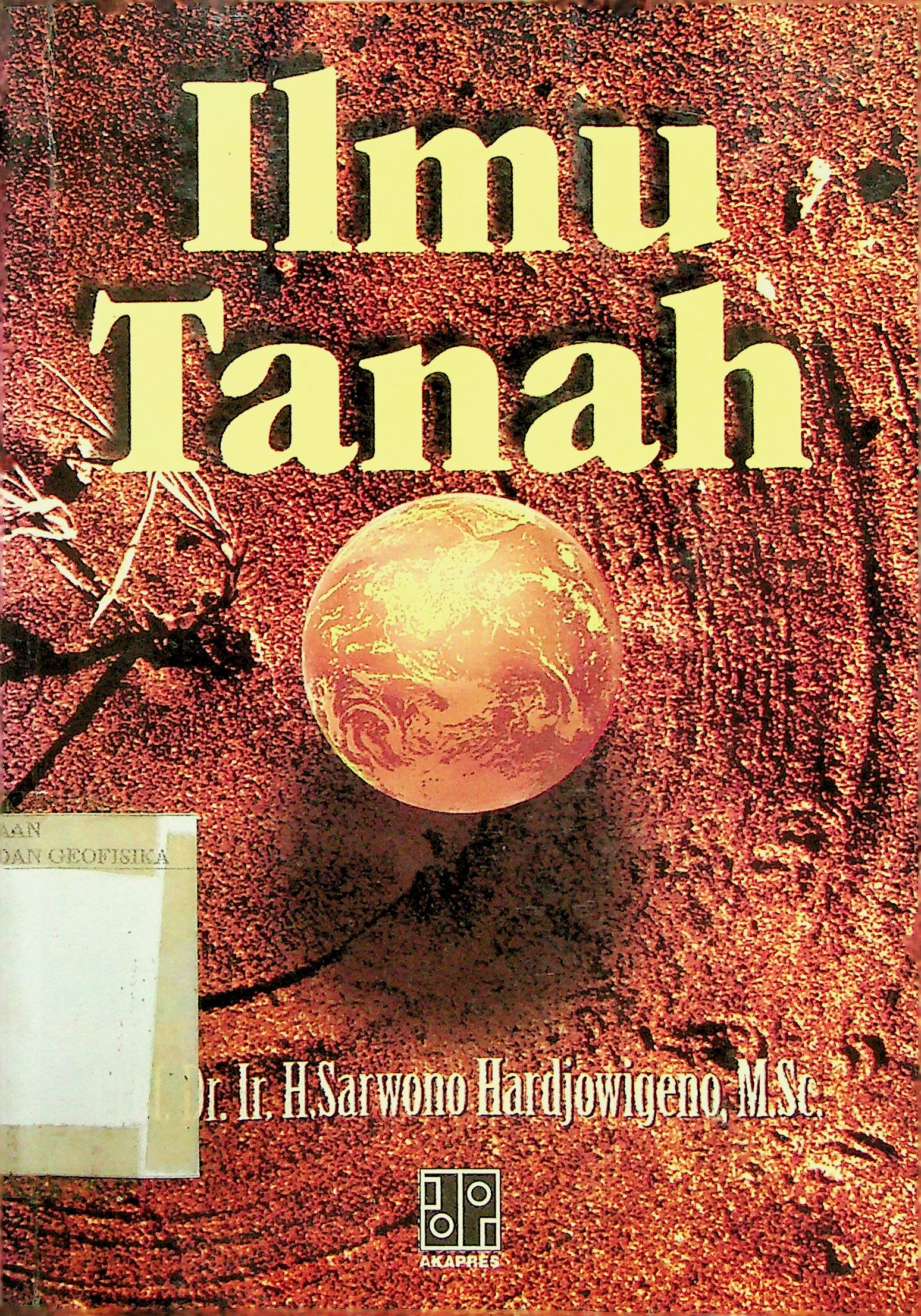The global earthquake activity rate (GEAR1) seismicity model uses an optimized combination of geodetic strain rates, hypotheses about converting strain rates to seismicity rates from plate tectonics, and earthquake-catalog data to estimate global Mw ≥ 5:767 shallow (≤ 70 km) seismicity rates. It comprises two parent models: a strain rate-based model and a smoothedseismicity based model. The GEAR1 model was retrospectively evaluated and calibrated using earthquake data from 2005 to 2012, resulting in a preferred log–linear multiplicative combination of the parent forecasts. Since 1 October 2015, the GEAR1 model has undergone prospective evaluation within the Collaboratory for the Study of Earthquake Predictability (CSEP) testing center, forecasting Mw ≥ 5:95 seismicity. We present initial prospective forecast test results for the GEAR1 model, its tectonic and seismicity components, and for the first iteration of the strain-rate-based model, during the 1 October 2015–7 September 2017 period. During the evaluation period, observed earthquakes are consistent with the GEAR1 forecast and comparative test results likewise support that GEAR1 is more informative than either of its components alone. Based on a combination of retrospective and prospective testing, the tectonic forecasts do not effectively anticipate observed spatial earthquake distribution, largely due to overlocalization of the model with respect to observed earthquake distributions.
5
Prospective Evaluation of Global Earthquake Forecast Models: 2 Yrs of Observations Provide Preliminary Support for Merging Smoothed Seismicity with Geodetic Strain Rates
Anne Strader, Maximilian Werner, José Bayona
Penerbit :
Seismological Research Letters
Tahun :
2018
epaper
Geofisika
-
No Scan-
-
No Klasifikasidoi: 10.1785/0220180051
-
ISBN-
-
ISSN-
-
No Registrasi-
-
Lokasi TerbitUSA
-
Jumlah Hal10
-
Label-
-
Versi DigitalTIDAK
-
Versi FisikTIDAK
-
Lokasi Rak Buku Fisik//
-
Jumlah Exemplar Fisik Tersedia-




